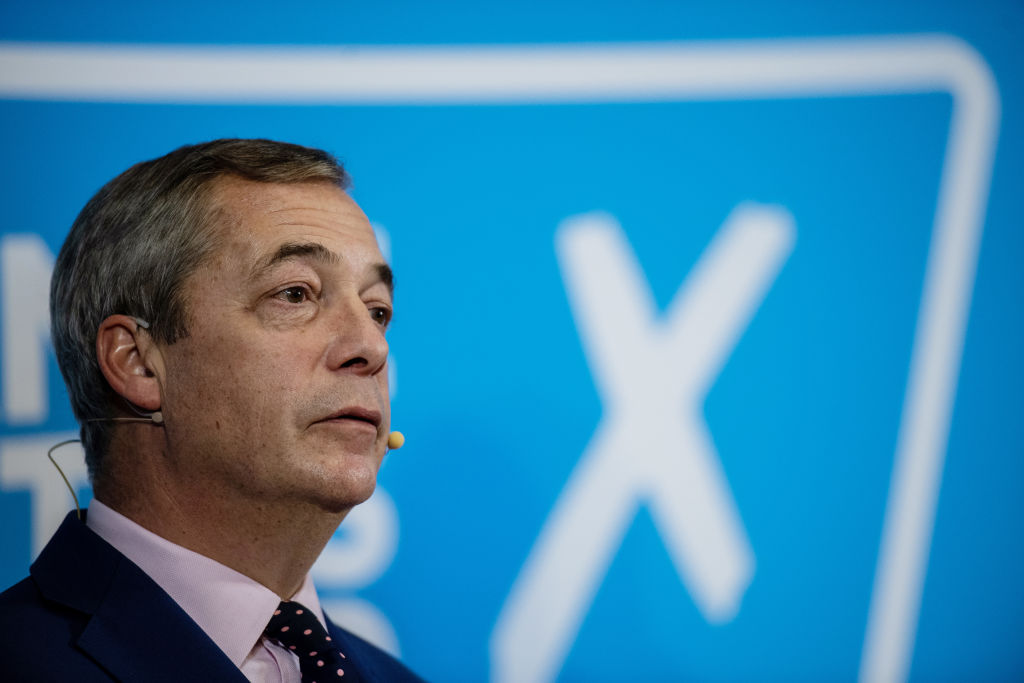So in the end Leave voters decided to save Nigel Farage from himself by once again using their strategic nous to herd behind the party that could do most to take us out of the European Union. Which wasn’t the Brexit party.
As widely predicted, including by me, the Brexit party did not even come close to winning a single parliamentary seat. In fact, as I write, its final vote share overall is on course to replicate the two per cent achieved by Ukip under Paul Nuttall in 2017.
Most heavily-defeated leaders who had spent six weeks predicting swathes of MPs for their party in the Commons might have turned to introspection, admitted errors and spoke of “learning lessons” after such a result. But such talk was not for Nigel Farage today and I am glad.
Because looking back at the epic year in politics, once again he can be seen to have vied with his Brexiteer rival and ultimate nemesis Boris Johnson as the central driving force.
It was his creation of the Brexit party and its annihilation of the Conservative party at the European elections that forced the removal of Theresa May by demonstrating to the Tories that their core vote was on the brink of deserting them for good.
And even in this general election, Farage ended up finding a good story to tell at the post-mortem table; he generally does. Jo Swinson had gifted him an alibi to warm the hearts of leave voters by declaring that once he stood his troops down in the 317 seats the Tories won in 2017, the job of the Lib Dems in attacking southern Tory seats became so much harder. Having been given a way to talk up his role in her downfall, he was hardly going to pass it up.
And while Brexit party vote shares certainly cost the Tories some notable extra scalps; Doncaster North, where Ed Miliband squeaked home with a majority of under 2,500 and where the Brexit party candidate scored more than 8,000 votes is the most obvious. In other seats, the dip in the Labour vote appeared to roughly match the Brexit party tally, arguably facilitating a Tory win by providing an outlet for angry Labour leavers who nonetheless were not prepared to go the whole hog by voting Conservative.
Also, let’s face it, the collective wisdom of the British people has bestowed the Conservatives under Boris Johnson with a commanding overall majority that is more than enough to “Get Brexit Done”. Boris’s leadership could also set the Tories on course to win again some time in 2024 (no wonder the financial markets have such a pep in their step today). To ask for more would not only be greedy, but in the long-term possibly counterproductive too.
Better still, Farage early today finally abandoned his silly decision to brand the Boris withdrawal agreement as “Not Brexit”. He even admitted it was far better than remaining in the EU, using the very phrase I’ve been urging upon him: “Half A Loaf.”
If the Tories were daft enough to start further diluting the Brexitiness of our EU departure – and after uniting the leave electorate behind them to such devastating political effect why on earth would they? – then the Farage bandwagon could easily start to roll again.
But that is an unlikely prospect. This feels to me like the decisive moment in the battle for Brexit: a routing of the remain forces, a humiliation of them by the great British public that will lead their media allies to be far more wary about promoting their anti-Brexit agenda should they decide to continue with it.
And as for Farage’s claim that he will now rebrand the Brexit party the “Reform party” and campaign on constitutional reform? Well, that seems unlikely to me.
Through many years of relentless campaigning and charismatic media performances, he destroyed the Tory monopoly on Euroscepticism, forcing the world’s most pragmatic political party to take some very big decisions indeed. From 2010 onwards, he became the “go to” weapon of anti-EU voters whenever the Tories were reluctant to deliver on their desire to reverse European political integration. And so, when Brexit hit a crisis early this year, everyone knew what to do.
But Nigel as the “go to” political figure to promote proportional representation and the abolition of the House of Lords – typically the priorities of the sort of “woke” centre-leftists who were routed yesterday? I really don’t think so. Particularly not if he maintains his apparent desire to turn Brits away from their love affair with the National Health Service.
A much better – and more deserved outcome – would be Lord Farage taking his own place in the House of Peers and making well-timed interventions of a kind to have their lordships reaching for the smelling salts.
I predict he will warm up further on Boris’s deal in the coming months, realising that to be remembered as a spectacular success it is necessary at some point to declare overall victory.
In a year’s time, when hopefully that transition period will be drawing to a close, Lord Farage of somewhere in Kent may even be prepared to acknowledge that we got three-quarters of a loaf in the end.
He will never be an RA Butler type of figure, fixated on the “art of the possible”, preferring instead to focus on dragging the seemingly impossible within reach. We couldn’t have done it without him. But yesterday he couldn’t have done it without us.







Comments